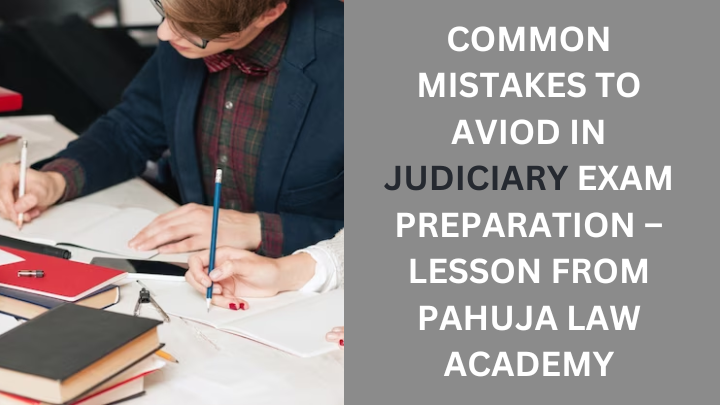In the pursuit of success in Judiciary exams, the aspirants often grapple with pitfalls that can inhibit their preparation. The most common mistake is downplaying the significance of understanding the complete syllabus. It is vital to meticulously go through all of the topics instead of focusing only on specific areas.
Another serious blunder is forsaking the practice of mock tests. Real exam scenarios are simulated through mock tests which facilitates time management and helps in identifying the weak areas. Failing to take frequent mock tests may result in candidates being overwhelmed during the actual examination. This hinders effective answer writing and causes imbalance in time management.
The aspirants should not ignore previous years papers as it helps in analyzing and understanding the question pattern, identifying important topics and familiarize yourself with the exam structure.
Current affairs are the mainstay of Judiciary exams. A mistake that the aspirants often make is not staying updated with the latest legal developments and news. It is very important for candidates to incorporate daily news analysis into their study routine as questions related to current affairs is included in various sections of the Judiciary exams to test candidate’s ability to analyze recent legal principles and apply them to the current situation.
Another crucial aspect is revision, yet many aspirants underestimate its vitality. Regularly revisiting/revising the topics reinforces memory and ensures better retention, and prevents information overload to deduct redundancy in answers.
Time management is often a stumbling block therefore aspirants should allocate sufficient time to each section and avoid spending too much time on a single question. A well-structured timetable helps effective time management.
The aspirants often underestimate practicing/developing soft skills. Soft skills form an essential part of Judiciary examination therefore it is necessary for aspirants to develop effective communication skills, particularly in legal writing as effective legal writing involves structuring arguments logically. This skill is vital in presenting cases or judgements in a clear, organized manner. Judges must communicate complex legal concepts to diverse audiences, therefore developing strong legal writing skills enhances the candidate’s ability to articulate legal ideas in a comprehensible manner. The quality of legal writing is highly valued in the judiciary.
Non-verbal communications should not be ignored as it plays a significant role in a judiciary interview and can influence the overall impression you make. Your body language, posture, and overall demeanor contribute to your professional image.
Law coaching centers play a pivotal role in guiding aspirants to avoid common mistakes while preparing for judiciary examination. Pahuja Law Academy prepares the candidates for judiciary coaching in a hybrid mode. It provides access to experienced faculty members who guide candidates on effective study strategies, exam patterns and key topics, helping to avoid misconceptions and errors. A well-structured study material is provided to the students which aligns with the exam syllabus which minimizes the chances of missing out crucial topics ensuring comprehensive coverage of syllabus. Mock tests are conducted regularly and candidates are kept abreast of recent legal developments by circulating current affairs on monthly basis. Apart from these PLA also provides for an interview guidance program which involves mock tests and grooming sessions.
All-in-all PLA focuses on the overall development of students aspiring for judiciary to ensure that the aspirants doesn’t have to face a set back in cracking all phases of the Judiciary Examination.



